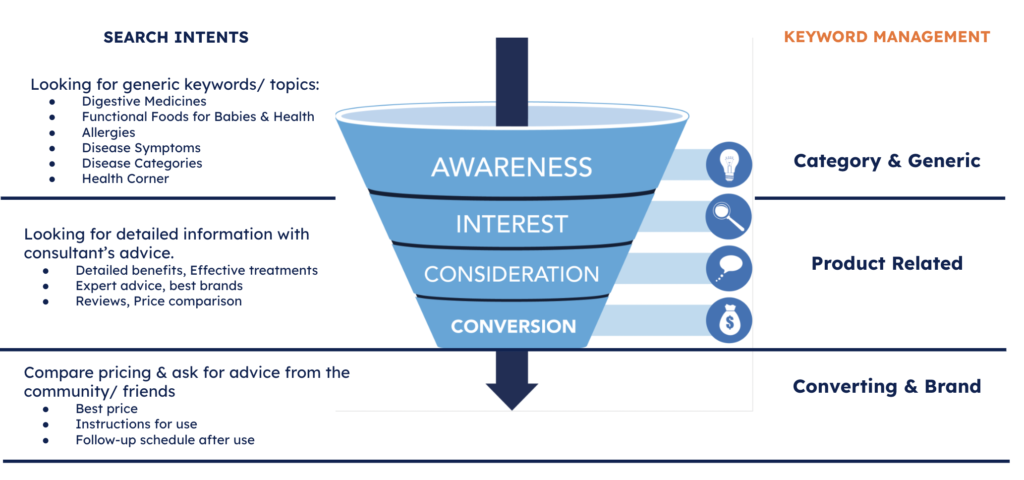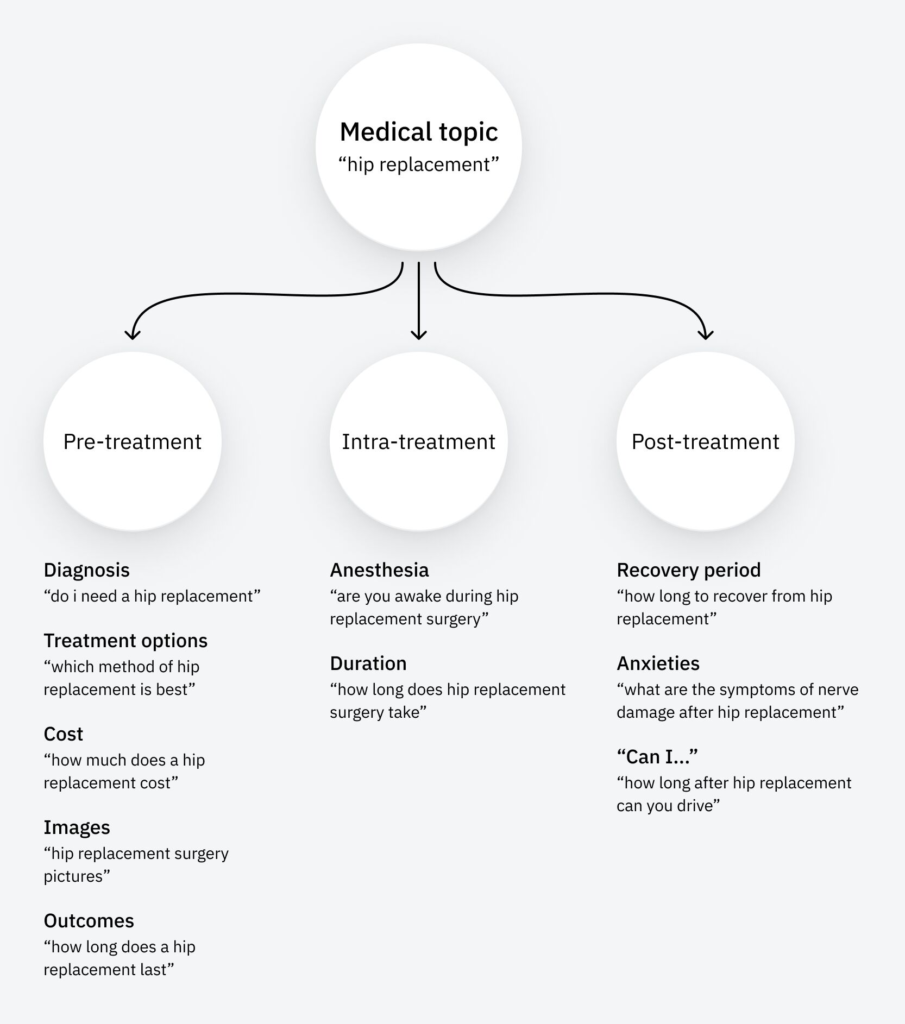Healthcare is unique in that its audience often seeks critical, life-changing information. SEO ensures that your website appears at the right time, delivering valuable, educational content that builds trust and drives qualified traffic.
1. Drives Quality Organic Traffic
Healthcare SEO ensures that your website is visible to the right audience at the right time. Patients and potential customers searching for health-related information often begin their journey on search engines. By ranking higher in search results, healthcare organizations can:
- Attract users actively seeking solutions, treatments, or information.
- Build trust by providing accurate, reliable, and helpful content.
- Reduce dependency on paid ads, making long-term customer acquisition more cost-effective.
2. Understanding Customer Intent in Healthcare Searches
Effective healthcare SEO starts with identifying customer intent:
- Symptom Searches: Users exploring potential health issues.
- Treatment or Procedure Research: Comparing options and providers.
- Usage and Medication Queries: Learning about medications, side effects, or alternatives.
- Provider Comparisons: Finding trusted clinics or doctors.
Content that addresses these intents improves visibility, engagement, and credibility
3. Importance of Educational Content in the Funnel
Tailoring content to the customer journey is critical:
- Top-of-Funnel: Focus on symptoms, prevention tips, or general advice to build authority and trust.
- Middle-of-Funnel: Provide treatment guides or provider comparisons to connect with users closer to decision-making.
- Bottom-of-Funnel: Optimize for conversions, such as booking appointments or contacting providers. Clear CTAs and optimized content support these goals.

4. Who Benefits from Healthcare SEO?
SEO can transform visibility for various healthcare businesses:
- Retail Healthcare Providers: Pharmacies, clinics, or urgent care centers.
- Pharmaceutical Companies: Promoting drugs, research, or innovative treatments.
- Dental Clinics: Attracting local patients for dental procedures.
- Healthcare Centers: Targeting audiences searching for specialized services.
- Insurance Companies: Highlighting plans, policies, and benefits.
5. Challenges Unique to Healthcare SEO
Healthcare SEO is more complex than many other industries due to its critical nature and strict standards:
- YMYL (Your Money or Your Life) Content: Google holds healthcare content to the highest standards of accuracy, as it impacts major life decisions.
- Expert Review Requirements: Medical content must be written or reviewed by certified healthcare professionals to meet Expertise, Authority, and Trustworthiness (E-A-T) guidelines.
- Local Relevance: Many healthcare providers operate within specific regions, making local SEO crucial for connecting with their target audience.
- Competition: Major international healthcare brands often dominate high-traffic keywords, requiring smaller businesses to use creative and localized strategies to compete.
- Regulations: Strict rules, like HIPAA compliance, limit how medical information can be shared online.
Core SEO Services for Healthcare Businesses
Effective healthcare SEO requires a mix of on-page, off-page, and technical optimizations:
On-Page SEO:
- Conduct keyword research to target relevant queries.
- Create high-quality, expert-reviewed content for YMYL topics.
Off-Page SEO:
- Build backlinks from credible sources, such as government and educational institutions.
- Optimize local listings on platforms like Google My Business.
Technical SEO:
- Enhance page load speeds and mobile responsiveness.
- Implement schema markup to improve search engine understanding.
Content Strategies for Healthcare SEO
Create Topic Clusters
Organize your content around key topics, linking related pages together. For example:
- Pre-Treatment Questions: “How much does LASIK surgery cost?”
- During Treatment: “How long does the procedure take?”
- Post-Treatment: “How long does recovery take?”
This structure improves user navigation and helps search engines understand your content’s breadth and depth.

Source: https://ahrefs.com/blog/healthcare-seo/
Ensure Expert Review
Google requires YMYL content to be medically accurate. Employ in-house or freelance medical reviewers to:
- Flag errors or misinformation.
- Add detailed explanations.
- Maintain an authoritative tone without making absolute claims.
Link Building for Healthcare SEO
Healthcare organizations have unique advantages for earning high-authority backlinks:
- Collaborate with government agencies or non-profits.
- Publish research or case studies that attract natural links.
- Host webinars or events with universities and medical institutions.
The Importance of Local SEO for Healthcare
Most healthcare services cater to a specific geographic area. To rank well locally:
- Optimize Google My Business Profiles: Keep your NAP (Name, Address, Phone Number) consistent, and encourage reviews.
- Target Local Keywords: “Best clinic near me.”
- Use Local Schema Markup: Enhance visibility in local pack results.
Schema Markup: A Game-Changer for Healthcare SEO
Schema markup allows search engines to understand your website better, making it eligible for rich results. For healthcare:
- Add medical schema for treatments and conditions.
- Use local schema for business locations.
- Enhance author and reviewer credibility with detailed schema profiles.
Healthcare SEO is competitive and involves solving unique challenges, like medical review of content, competing with industry giants, and staying compliant with tons of regulations. Would you like professional guidance to navigate the complexities of healthcare SEO? Contact us today to start transforming your online presence.
Contact us
Tvia Collab – Martech Solutions Consulting
📍Office: 2nd Floor, 06 Vo Van Kiet Street, Nguyen Thai Binh Ward, District 01, Ho Chi Minh City, Vietnam
🌐 Website: https://tviacollab.com
📞 Hotline: 0933 403 565
📧 Email: contact@tviacollab.com

